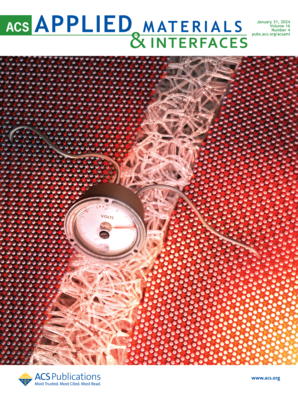Preparation and Investigation of Temperature-Responsive SiO2–PSBMA Janus Nanosheet with Salt-Tolerant Properties for Enhanced Recovery of Heavy Oil
Abstract
Enhancing heavy oil recovery is crucial to ensuring stable crude oil production. The development of stimulus-responsive Janus Pickering emulsifiers tailored for a reservoir environment has garnered significant attention in the field of reservoir production, emerging as a promising alternative to traditional surfactants. In this study, silica-based Janus nanosheets with temperature-responsive properties (OH-SiO2–PSBMA JNs) are synthesized using sol–gel process and atom transfer radical polymerization (ATRP) method. Experimental observations reveal that OH-SiO2–PSBMA JNs (0.1 wt %) can effectively reduce the interfacial tension (IFT) between heavy oil and water to 23.24 mN/m. Additionally, these nanosheets exhibited excellent emulsifying ability, forming stable emulsions with an average particle size of only 35 μm at a mass fraction of 1 wt % and demonstrating good salt tolerance (Salinity value: 1.51 × 104 mg/L). Furthermore, OH-SiO2–PSBMA JNs exhibited a temperature response that is well-suited for the reservoir environment, effectively stabilizing heavy oil emulsion at a high temperature (65 °C) and facilitating oil–water separation at a lower temperature (25 °C). These excellent properties of nanosheets contributed to obtaining an additional 13.2% recovery rate at low concentration (0.03 wt %). These results indicated that OH-SiO2–PSBMA JNs had the potential for enhanced oil recovery (EOR) application.





